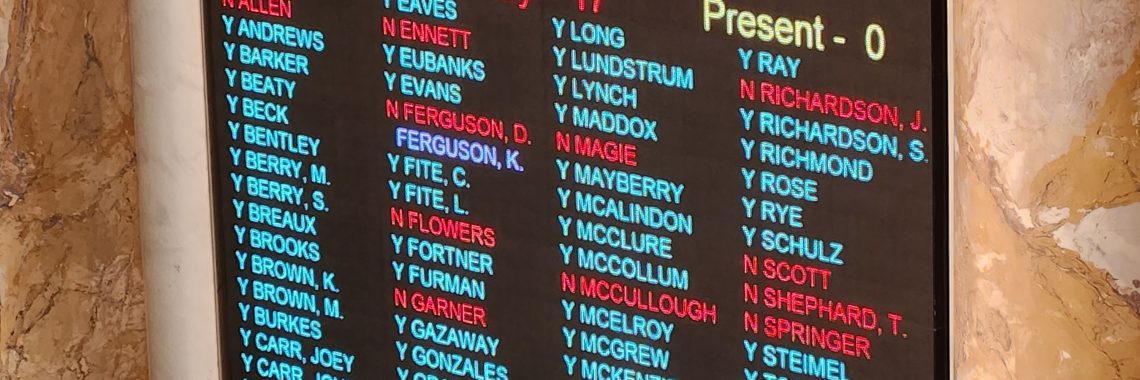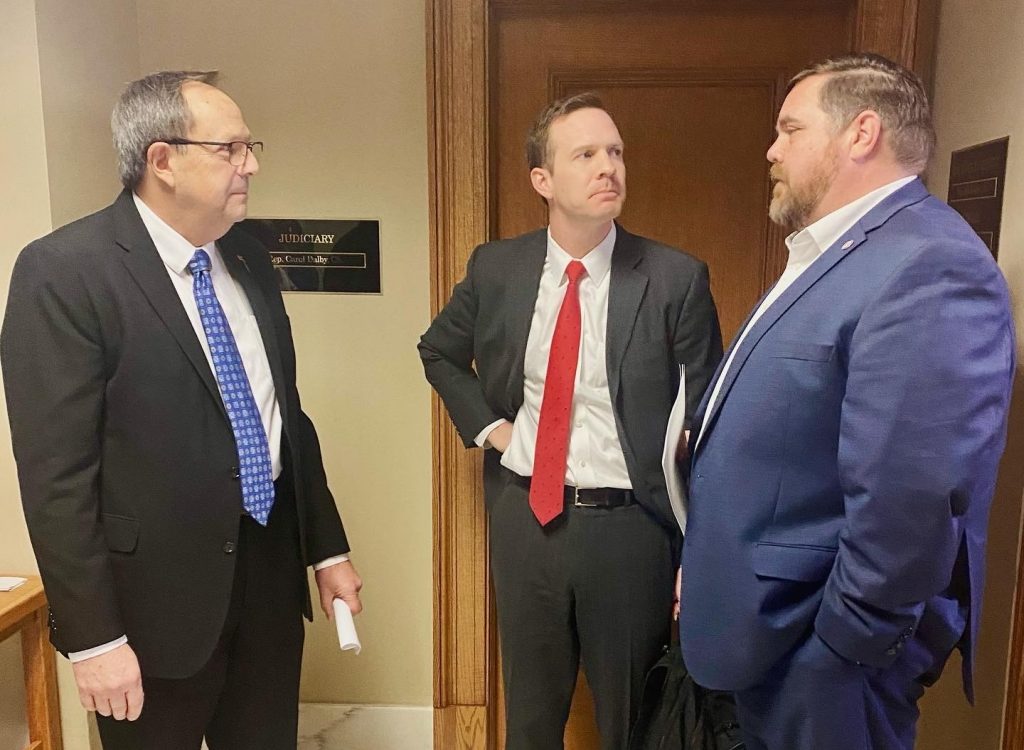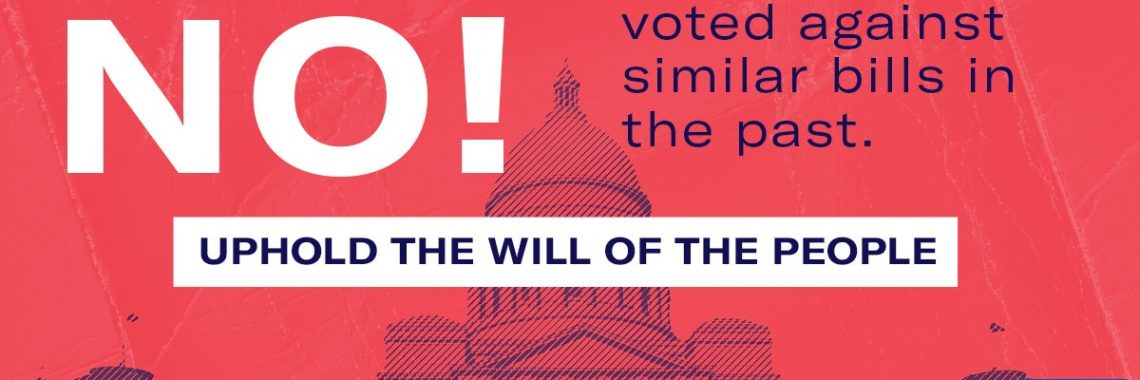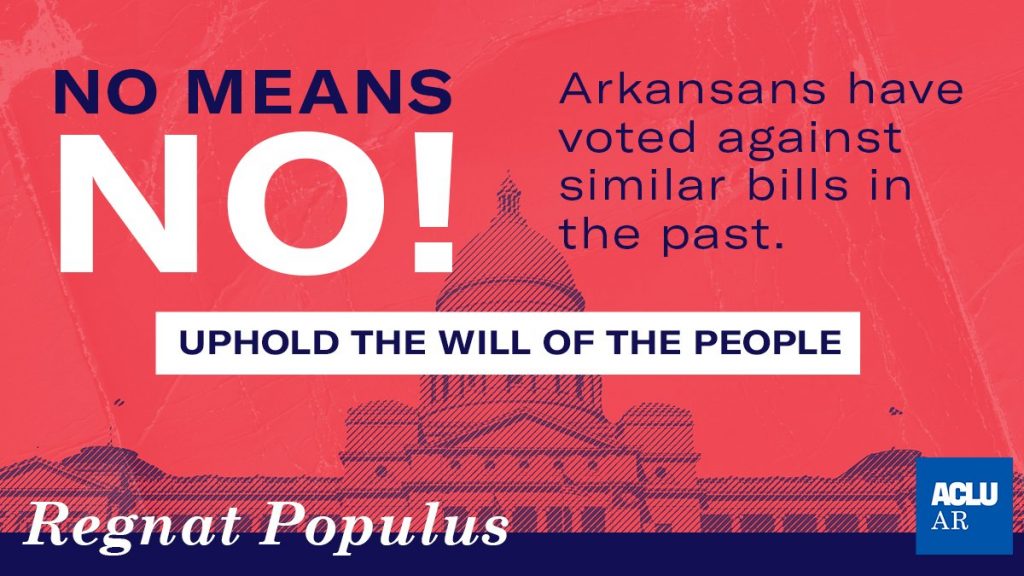Updated: Arkansas House of Representatives Passes Religious Freedom Measure
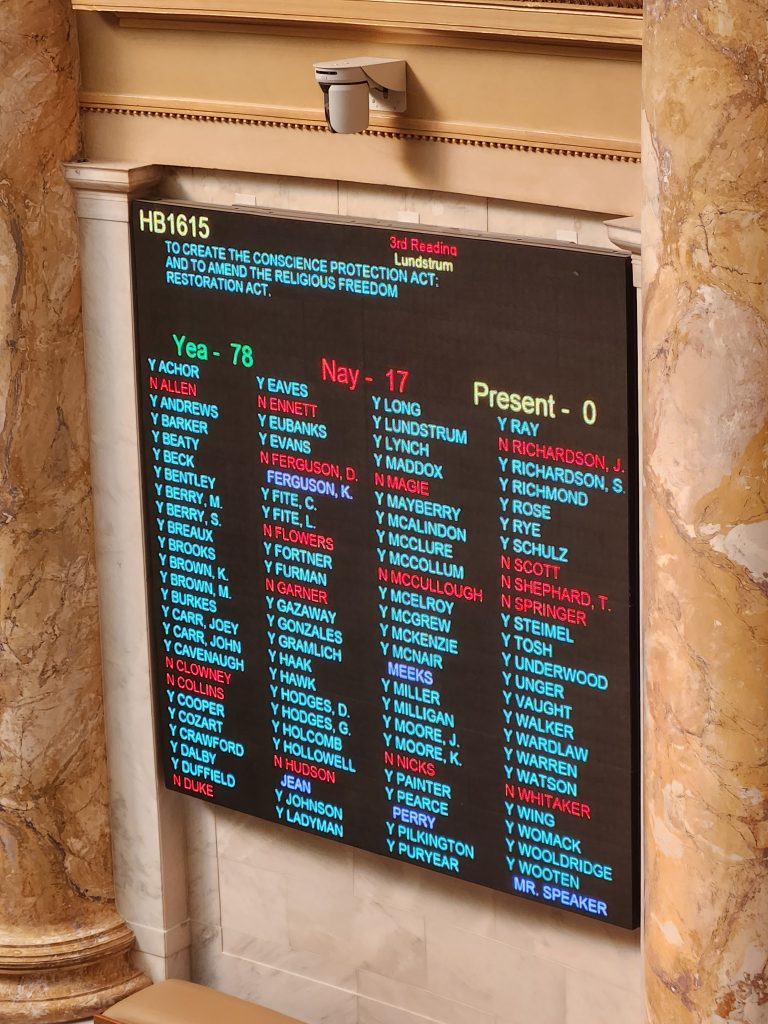
On Monday the Arkansas House of Representatives overwhelmingly passed a good bill enhancing protections for religious freedom.
H.B. 1615, the Conscience Protection Act by Rep. Robin Lundstrum (R — Elm Springs) and Sen. Gary Stubblefield (R — Branch), makes important clarifications to the state Religious Freedom Restoration Act.
The bill also helps prohibit religious discrimination against individuals, business owners, and organizations that want to follow their deeply held religious convictions.
In 2015 Gov. Hutchinson signed Arkansas’ Religious Freedom Restoration Act into law. That good law has been on the books for the past eight years.
Since then, we have seen wedding venues, bakeries, photography studios, and florist shops come under fire, because their owners wanted to operate according to their deeply held convictions. That is why it is so important for our laws to protect religious liberty as much as possible.
H.B. 1615 improves on good state law to help prevent the government from burdening the free exercise of religion in Arkansas.
If enacted, H.B. 1615 would provide Arkansans with some of the best religious freedom protections in the nation.
The bill now goes to the Arkansas Senate for consideration.
The Following Representatives Voted For H.B. 1615
- Achor
- Andrews
- Barker
- Beaty Jr.
- Beck
- Bentley
- M. Berry
- S. Berry
- Breaux
- Brooks
- K. Brown
- M. Brown
- Burkes
- Joey Carr
- John Carr
- Cavenaugh
- C. Cooper
- Cozart
- Crawford
- Dalby
- Duffield
- Eaves
- Eubanks
- Evans
- C. Fite
- L. Fite
- Fortner
- Furman
- Gazaway
- Gonzales
- Gramlich
- Haak
- Hawk
- D. Hodges
- G. Hodges
- Holcomb
- Hollowell
- L. Johnson
- Ladyman
- Long
- Lundstrum
- Lynch
- Maddox
- J. Mayberry
- McAlindon
- McClure
- McCollum
- M. McElroy
- McGrew
- B. McKenzie
- McNair
- Miller
- Milligan
- J. Moore
- K. Moore
- Painter
- Pearce
- Pilkington
- Puryear
- Ray
- Richmond
- Rose
- Rye
- Schulz
- R. Scott Richardson
- Steimel
- Tosh
- Underwood
- Unger
- Vaught
- Walker
- Wardlaw
- Warren
- Watson
- Wing
- Womack
- Wooldridge
- Wooten
The Following Representatives Voted Against H.B. 1615
- F. Allen
- Clowney
- A. Collins
- Duke
- Ennett
- D. Ferguson
- V. Flowers
- D. Garner
- Hudson
- Magie
- McCullough
- Nicks
- J. Richardson
- Scott
- T. Shephard
- Springer
- D. Whitaker
The Following Representatives Did Not Vote
- K. Ferguson
- Jean
- S. Meeks
- Perry
- Speaker Shepherd

